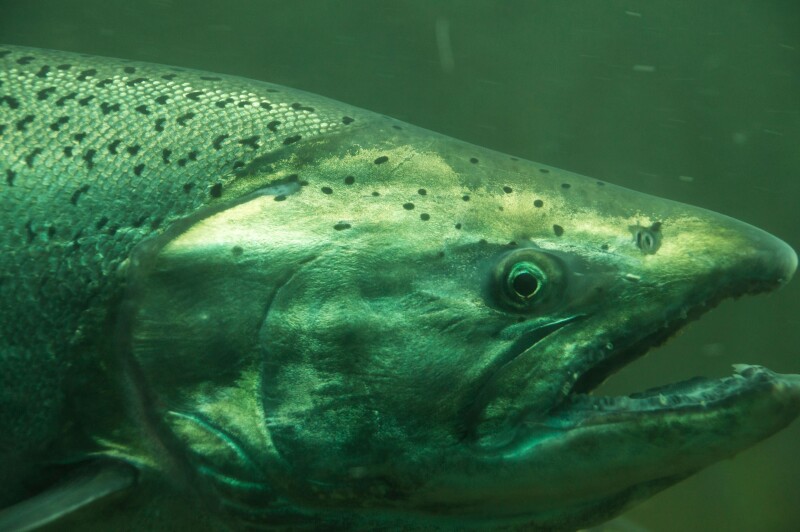Two trawlers from Kodiak caught 2,000 king salmon, leading to the closure of their entire fishery. Though the incident was unintended, it brought more attention to bycatch issues in Alaska. The vessels, part of a Kodiak-based fleet, were targeting pollock at the time of the incident and caught just over a quarter of their quota when federal managers called to shut down the fishery on Wednesday.
According to sources, about 20 boats will now be forced to end their season weeks before the November 1 closure, leaving hundreds of jobs at processing plants also in jeopardy. The pollock closure ensures the fleet does not exceed its yearly cap on its unintentional king salmon harvest, which is about 18,000 fish.
Julie Bonney from the Alaska Groundfish Data Bank (AGDB) told Alaska Beacon, “From a community perspective, it’s huge. Nobody’s happy about the closure, but they understand the reason.” AGDB is a member-based organization that represents the Gulf of Alaska shoreside trawl catcher vessels and processors, primarily in Kodiak.
The state is currently facing numerous legal issues. One court case on ecosystem change and bycatch in Alaska Bering Sea groundfish trawl fisheries could halt the giant pollock fishery, and another argues that the newly implemented halibut bycatch control program is financially ruinous.
In addition to the cases, tribal advocates and conservation groups have made substantial pleas to fishery managers to crack down on bycatch in the trawl fishery over recent years. The groups have focused on pollock trawlers regarding their bycatch in the Bering Sea. The nets on these vessels often catch salmon and other species when targeting whitefish. Though the two thousand salmon caught on Sunday were harvested in the central Gulf of Alaska and not the Bering Sea, the same type of net was used.
According to the North Pacific Fishery Management Council, most of the salmon caught as bycatch in the Gulf are from the U.S. West Coast and British Columbia. The Biden administration claims that listing numerous Alaska king salmon populations under the Endangered Species Act could be warranted. They have cited the species’ decline in size as adults and the spawning numbers below sustainable targets set. Gulf kings fall under the petition to be listed in the Endangered Species Act.
AGDB and federal fishery management declined to identify the two vessels that caught the salmon. However, one co-owner of one of the vessels, Evie Grace, confirmed they had harvested more than 1200 kings during the Sunday trip. A Kodiak-based family partnership owns Evie Grace. Until this point in the season, the most king salmon that the vessel had caught in a single trip was 53.
Bycatch in the central Gulf trawl fishery is managed under a complex federal framework. Only a portion of the vessels have salmon bycatch numbers independently verified. Both vessels involved in Sunday's incident had their counts verified, putting the whole fleet over the annual limit of 18,316 fish. This is the first time the annual cap has been hit since its establishment in 2012.
National Marine Fisheries Service federal manager Josh Keaton shared that the formal closure was not issued until Wednesday morning. Still, the fleet stopped fishing, knowing the cap was at risk of being exceeded.







